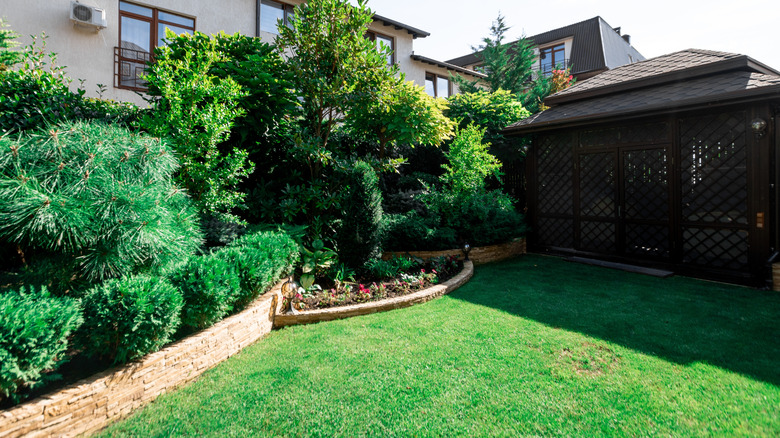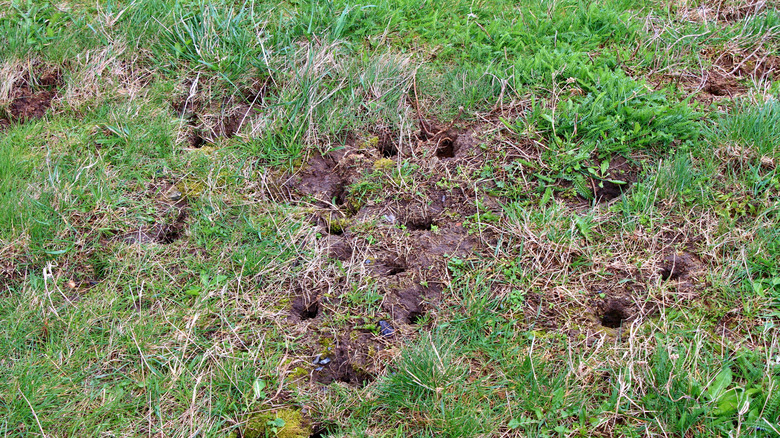The First Spot In Your Yard To Check For Wasps Before Winter
Most pest control experts claim that wasps die once the temperature drops below freezing. So, on a frosty morning, you'd naturally think that wasp-buzzing days are over. But the truth is, not every colony dies when winter knocks. Before winter sets in, worker bees drive out every drone, and not long after, they, too, meet their own quiet end. But the queen bee? She survives. She slips out of sight, waiting for spring's return. And to do that, she needs somewhere dark and safe, which is why the first spot in your yard you must check before winter is the rodent burrows. Those forgotten little tunnels are an ideal place for a queen wasp seeking warmth.
Wasps are basically opportunists. They'll happily repurpose old or abandoned burrows because they feel snug and protected from frost. Peek inside holes in your yard and you might find a papery nest, light as dried leaves. It could be clinging to the soil or tucked into a nook. It's easy to mistake it for debris until you lean closer and spot the delicate layers woven like brittle parchment. That's your cue. If you don't catch them now, by spring those tenants will emerge buzzing with plans for expansion.
Fill in rodent burrows to keep wasps at bay
If you've ever stumbled across a small mound of loose soil with a neat little hole about the size of a golf ball, chances are you've found a rodent burrow. These burrows have round entrances, typically 2-3.5 inches wide, and have a bit of scattered dirt around them (as if someone's been doing secret nighttime digging). Grab a torch and scan along fences, garden beds, compost piles, or the edges of sheds. Wasps love undisturbed spots, and that's where these burrows usually hide.
Once you find one, gently pack the hole with soil or dirt to close it off and get ahead of your wasp problem. For a sturdier fix, stuff some steel wool into the entrance before covering it; it's tough enough to block wasps and discourages rodents from reopening it. If you're dealing with multiple burrows, laying down hardware mesh over the area adds an extra layer of protection. Also, to prevent wasps from overwintering near your home, eliminate food sources around your yard. Close those trash bins and clear the fallen fruit. Because where there's food, there's life. And you certainly don't want your garden becoming a free meal site for pests waiting for spring.

